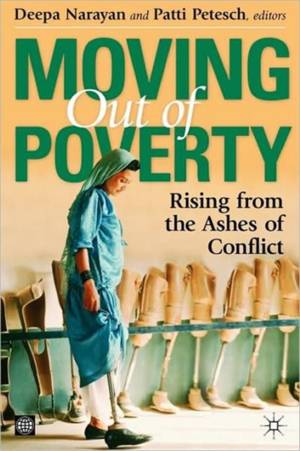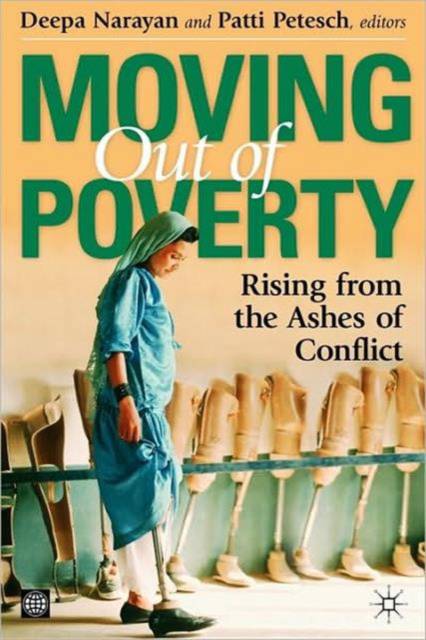
Bedankt voor het vertrouwen het afgelopen jaar! Om jou te bedanken bieden we GRATIS verzending (in België) aan op alles gedurende de hele maand januari.
- Afhalen na 1 uur in een winkel met voorraad
- In januari gratis thuislevering in België
- Ruim aanbod met 7 miljoen producten
Bedankt voor het vertrouwen het afgelopen jaar! Om jou te bedanken bieden we GRATIS verzending (in België) aan op alles gedurende de hele maand januari.
- Afhalen na 1 uur in een winkel met voorraad
- In januari gratis thuislevering in België
- Ruim aanbod met 7 miljoen producten
Zoeken
€ 67,95
+ 135 punten
Uitvoering
Omschrijving
"There is no peace with hunger. Only promises and promises and no fulfillment. If there is no job, there is no peace. If there is nothing to cook in the pot, there is no peace." - Oscar, a 57-year-old man, El Gorrión, Colombia "They want to construct their houses near the road, and they cannot do that if they do not have peace with their enemies. So peace and the road have developed a symbiotic relation. One cannot live without the other. . . ." - A community leader from a conflict-affected community on the island of Mindanao, Philippines Most conflict studies focus on the national level, but this volume focuses on the community level. It explores how communities experience and recover from violent conflict, and the surprising opportunities that can emerge for poor people to move out of poverty in these harsh contexts. 'Rising from the Ashes of Conflict' reveals how poor people's mobility is shaped by local democracy, people's associations, aid strategies, and the local economic environment in over 100 communities in seven conflict-affected countries, including Afghanistan. The findings suggest the need to rethink postconflict development assistance. This is the fourth volume in a series derived from the Moving Out of Poverty study, which explores mobility from the perspectives of poor people in more than 500 communities across 15 countries.
Specificaties
Betrokkenen
- Auteur(s):
- Uitgeverij:
Inhoud
- Aantal bladzijden:
- 576
- Taal:
- Engels
- Reeks:
- Reeksnummer:
- nr. 4
Eigenschappen
- Productcode (EAN):
- 9780821376317
- Verschijningsdatum:
- 1/03/2010
- Uitvoering:
- Paperback
- Formaat:
- Trade paperback (VS)
- Afmetingen:
- 155 mm x 226 mm
- Gewicht:
- 748 g

Alleen bij Standaard Boekhandel
+ 135 punten op je klantenkaart van Standaard Boekhandel
Beoordelingen
We publiceren alleen reviews die voldoen aan de voorwaarden voor reviews. Bekijk onze voorwaarden voor reviews.









